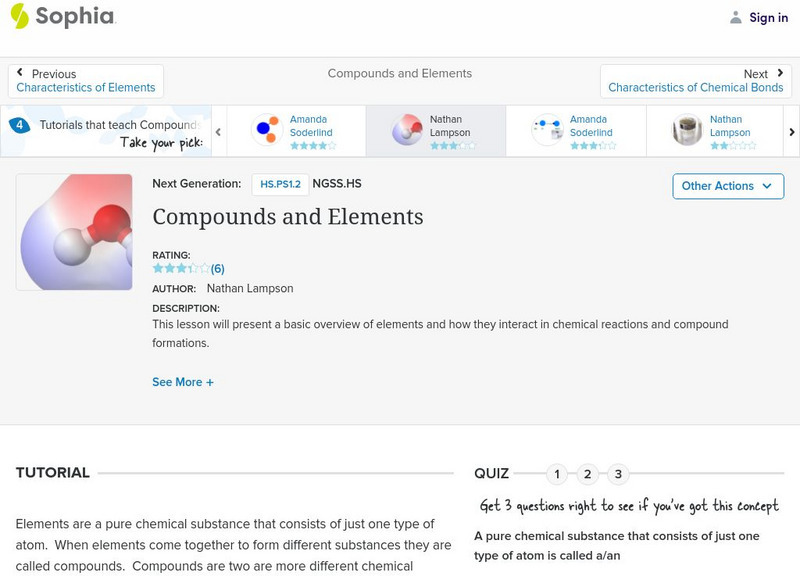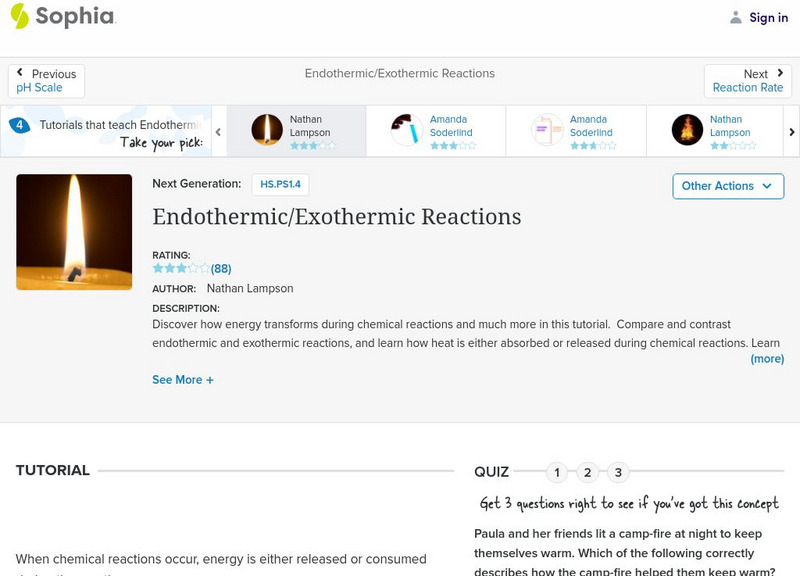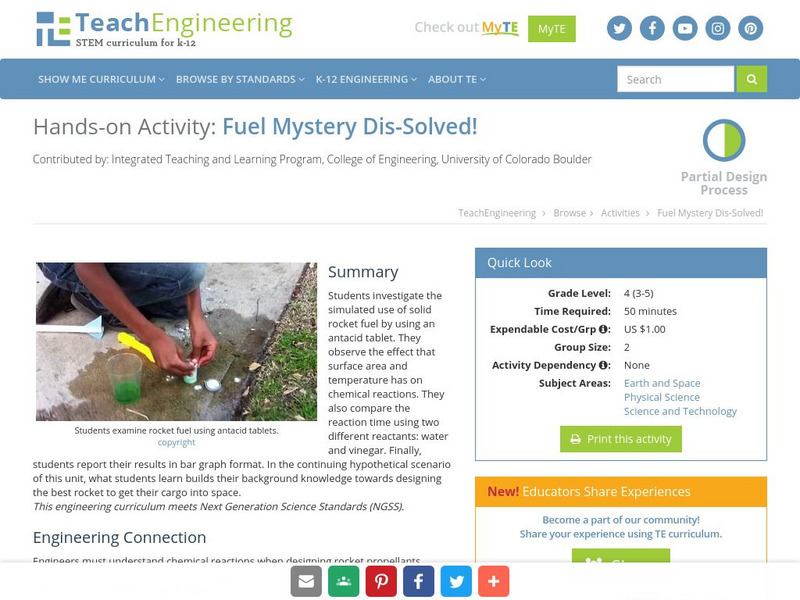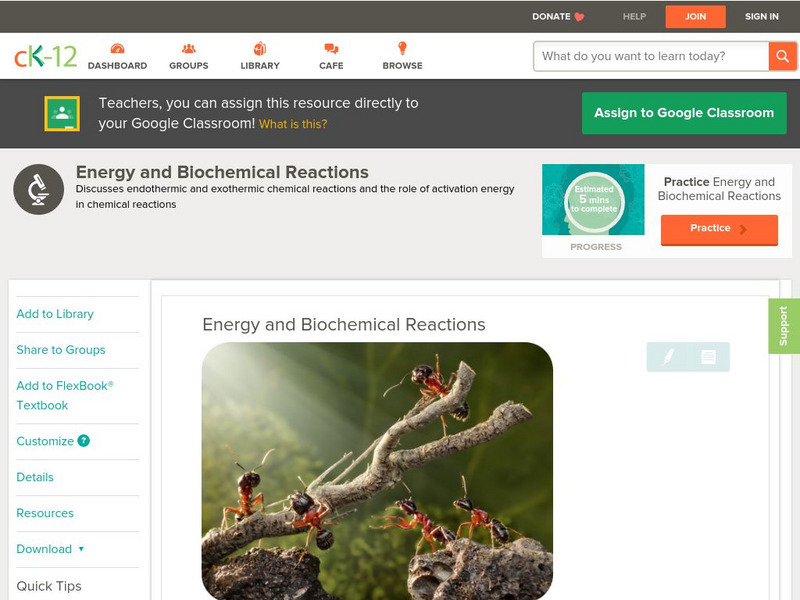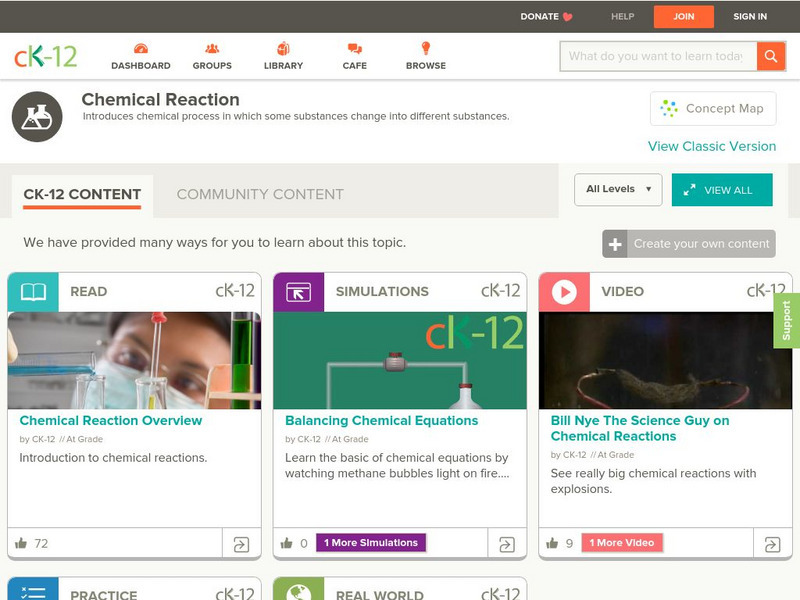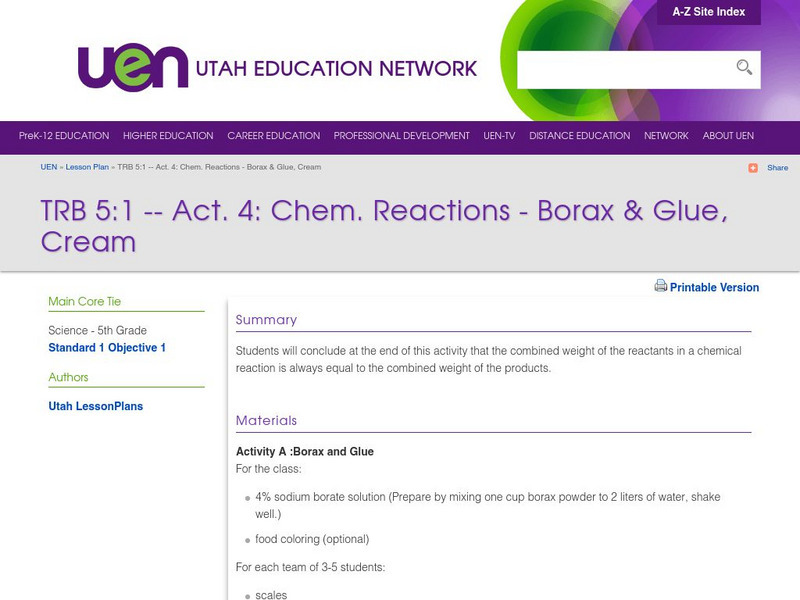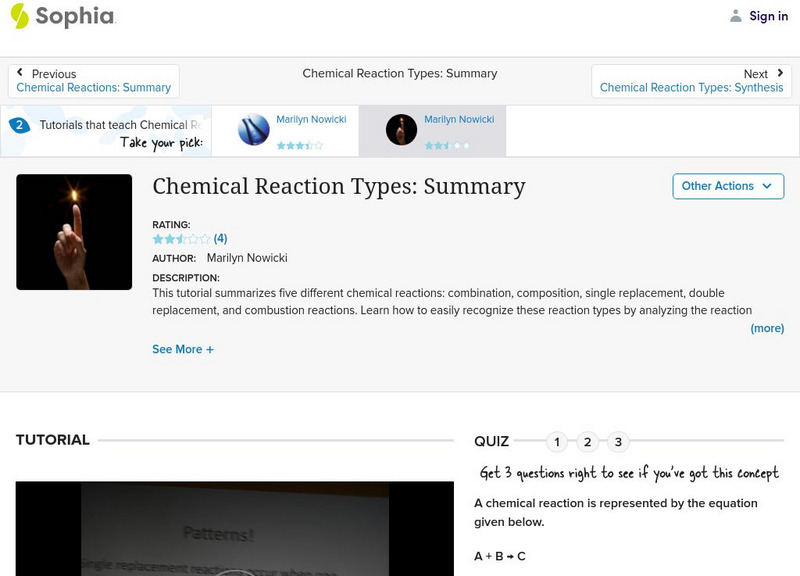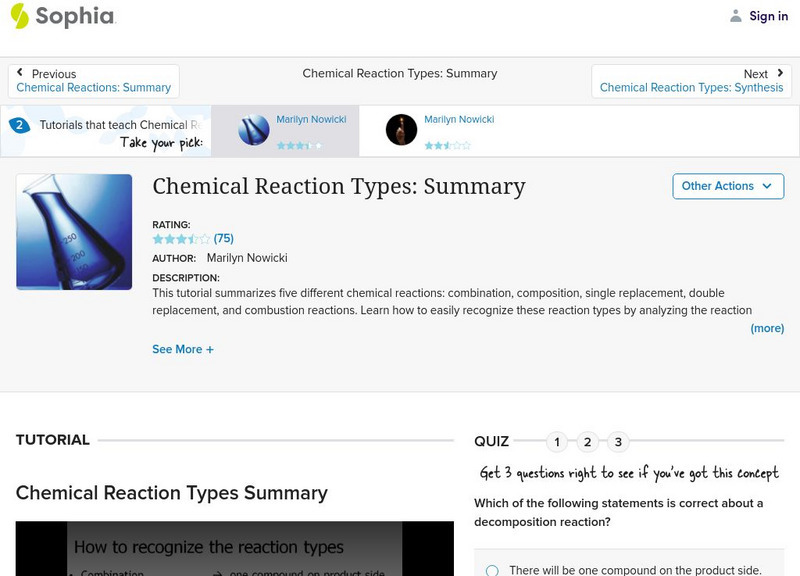Hi, what do you want to do?
Sophia Learning
Sophia: Compounds and Elements: Lesson 2
This lesson will present a basic overview of elements and how they interact in chemical reactions and compound formations. It is 2 of 4 in the series titled "Compounds and Elements."
Sophia Learning
Sophia: Endothermic/exothermic Reactions: Lesson 2
This lesson explains the difference between endothermic and exothermic chemical reactions. It is 2 of 4 in the series titled "Endothermic/Exothermic Reactions."
National Association of Geoscience Teachers
Nagt: The Chemistry of Sand: Not All Beaches Are Created Equal
A laboratory activity where students investigate the chemistry of sand based on whether and how much it reacts with hydrogen chloride. They then make predictions and observe what happens when they do the same with various shell pieces.
American Chemical Society
Middle School Chemistry: Forming a Precipitate
This diagram illustrates a chemical reaction forming a precipitate.
American Chemical Society
Middle School Chemistry: Co2 Reacting With Water
See how carbon dioxide reacts with water to produce carbonic acid.
TeachEngineering
Teach Engineering: Fuel Mystery Dis Solved!
In this activity, students investigate the simulated use of solid rocket fuel by using an antacid tablet. Students observe the effect that surface area and temperature has on chemical reactions. Also, students compare the reaction time...
TeachEngineering
Teach Engineering: Pop Rockets
Students design and build a paper rocket around a film canister, which is used as the engine. An antacid tablet and water are put into the canister, react to form carbon dioxide gas, and act as the pop rocket's propellant. With the lid...
TeachEngineering
Teach Engineering: Blast Off
Rockets need a lot of thrust to get into space. In this lesson plan, students learn how rocket thrust is generated with propellant. The two types of propellants are discussed and relation to their use on rockets is investigated. Students...
CK-12 Foundation
Ck 12: Biology: Energy and Biochemical Reactions
[Free Registration/Login may be required to access all resource tools.] Covers the role of energy in chemical reactions.
CK-12 Foundation
Ck 12: Biology: Significance of Carbon
[Free Registration/Login may be required to access all resource tools.] Describes the significance of carbon to life on Earth.
Utah Education Network
Uen: Changes in Matter Chemical Reactions They're Everywhere
Can you distinguish physical changes from chemical reactions? You'll be presented with a number of pictures and asked to identify those which are examples of chemical reactions.
CK-12 Foundation
Ck 12: Physical Science: Chemical Equations
[Free Registration/Login may be required to access all resource tools.] An overview of chemical equations.
CK-12 Foundation
Ck 12: Physical Science: Chemical Reaction Overview
[Free Registration/Login may be required to access all resource tools.] Explains chemical property and chemical reaction.
CK-12 Foundation
Ck 12: Physical Science: Activation Energy
[Free Registration/Login may be required to access all resource tools.] Definition of activation energy and why all chemical reactions require it.
Utah Education Network
Uen: Trb 5:1 Activity 6: Chemical Change
For this fifth grade activity, students explore how matter changes during a chemical reaction.
Utah Education Network
Uen: Trb 5:1 Act. 4: Chem. Reactions Borax & Glue, Cream
For this experiment for Grade Five, students develop an understanding that chemical changes in matter do not affect the actual mass of the matter.
Sophia Learning
Sophia: Chemical Equation: Balancing
Use this narrated tutorial to help understand how to balance a chemical equation using coefficients and leaving formula subscripts unchanged. [9:35]
Sophia Learning
Sophia: Chemical Reactions: Summary
This lesson summarizes how chemical reactions occur, and that not all reactions go to completion. [1:41]
Sophia Learning
Sophia: Chemical Reaction Types: Acid Base
This narrated screencast demonstrates the products of the acid base reaction of water and a salt. [2:01]
Sophia Learning
Sophia: Chemical Reaction Types: Summary
A video tutorial illustrating the basic types of chemical reactions commonly seen in general chemistry. [5:04]
Sophia Learning
Sophia: Chemical Reaction Types: Summary
Watch this screencast introducing several common types of chemical reactions. [1:36]
Sophia Learning
Sophia: Chemical Reaction Types: Synthesis
A video lesson which illustrates how to identify and complete a synthesis chemical reaction. [8:08]
Sophia Learning
Sophia: Chemical Reaction Types: Synthesis
A narrated tutorial which describes how to identify and complete a synthesis reaction. [9:55]
Sophia Learning
Sophia: Enzymes Proteins That Pack a Punch!
Through a combination of slide show tutorials and a video demonstration, learn how enzymes work. [3:00]





